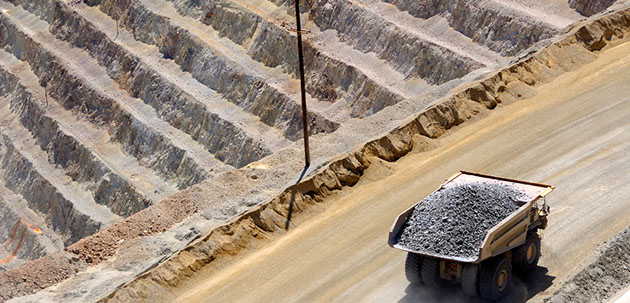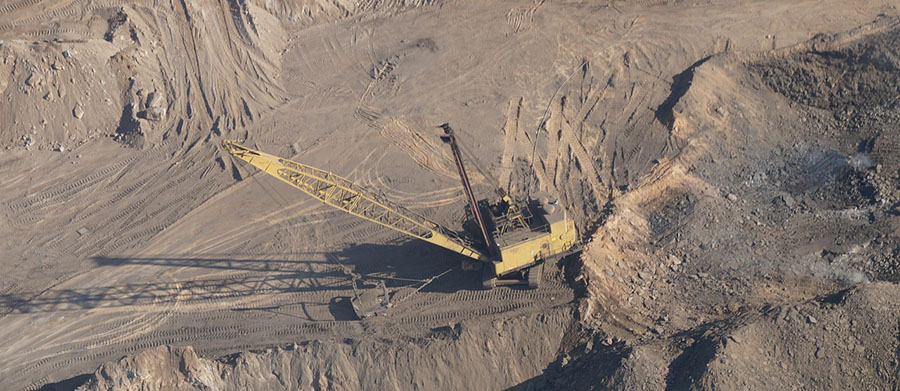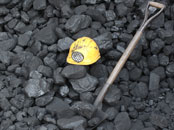
The U.S. has a wealth of coal; an estimated 483 billion tons according to the EIA, and there is a strong industry devoted to converting this resource into affordable energy. The industry has always been opposed to restrictions on power plant emissions. Limited emissions likely mean a higher cost for coal power, which can mean a decrease in demand. With restrictions in place, coal may have no choice but to develop cleaner and cheaper CCS technology.
Politics
On June 25 2013, President Obama spoke at Georgetown University extensively on climate change, and he stated clearly that reducing emissions from coal is an important component of his climate action plan. Subsequently, coal industry leaders and their representatives in Washington have reacted as though Obama has declared a "War on Coal." Despite the president's strong rhetoric on reducing carbon emissions, coal will not be out of the energy mix anytime soon. In an interview with Reuters in June 2013, Energy Secretary Ernest Moniz expounded, "[President Obama] expects fossil fuels, and coal specifically, to remain a significant contributor for some time." Moniz's statement is firmly supported by energy industry experts such as the Energy Information Administration (EIA). EIA energy forecasts clearly points to coal as a dominant energy resource in the U.S. and across the world for years to come.
Assurances from the Obama Administration that coal is not under attack are not appeasing representatives from states like West Virginia and Kentucky whose economies depend largely on coal mining. In a statement on the Senate floor Thursday September 19th Senate Minority Leader Mitch McConnell (R-Ky) voiced support for these states saying, "I know how important coal is to the state of Kentucky, West Virginia, Indiana. A lot of states feel very strongly about coal." McConnell's statement was in support of his "Saving Coal Jobs Act" for which he attempted to amass backing. The bill, which did not get widespread support, would have prevented the EPA from regulating coal fired power plant emissions. While the coal industry benefits from lax emissions standards now, regulations for cleaner air are sure to be implemented at some point. Investing in CCS would help the coal industry compete in the long term.
What the president's climate change plans and the EPA's proposed rule on carbon emissions do mean however, is that the coal industry must advance technologically in order to survive. It is estimated that new generation plants will be cheaper and more efficient to build if they are fueled by natural gas rather than coal. This is because of the cost of CCS devices coal plants would need to install to reduce greenhouse gas emissions.
New Research
Reports from agencies like the EIA and the Clean Air Task Force suggest that incorporating CCS technology into a new coal power plant will make it about 20%-35% more expensive to build than a standard coal plant. Coal industry leaders argue that this will effectively make new coal power plant construction economically impossible.
A paper published in September, 2013 in the Journal of Environmental Studies and Sciences entitled "The social cost of carbon: implications for modernizing our electricity system" analyzes the social cost of carbon (SCC). The EPA defines the SCC as, "an estimate of the economic damages associated with a small increase in carbon dioxide (CO2) emissions, conventionally one metric ton, in a given year. This dollar figure also represents the value of damages avoided for a small emission reduction." Even though the SCC, by the EPA's own admission, likely underestimates the real costs of climate change damages, it is still a useful measuring tool, and it ramps up the true cost of coal fired power plants without CCS.
This analysis indicates that fossil fuels, including coal, are becoming economically unviable, and it is not alone in that conclusion. That sentiment worries the coal industry, and reinforces President Obama's call for action on climate change.
Responding to Emissions Regulations
The coal industry should take clean air regulations as a cue that investing in CCS technology is a necessity if it is to survive. If coal power has a future, it is in clean coal. Fighting regulations, instead of investing in clean technology, will be an expensive battle. As renewable energy sources become competitive with fossil fuels in the near future, there will be a definite shift to low-cost, emission-free power sources. For coal to remain in the long-term mix, it needs to be a power source that is both clean and cheap, or it will inevitably be phased out as old technology.
After all, this is the way technology progresses. As newer and more efficient ways of doing things become available, older technology falls by the wayside. Wireless communication is fast replacing telephone wires; the typewriter is an antique, and portable computers are ubiquitous; furnaces distribute heat throughout our homes, making the once crucial fireplace a decorative living room feature; even personal computer hardware appears to be challenged by the new "cloud" innovation.
Staying Relevant
The coal industry argues strongly that it is crucial to the American economy and supports thousands of jobs nationwide. Research and development of carbon capture equipment will not only increase the number of jobs supported by the industry, but increase the number of jobs in fields such as the sciences, that have been scarce in the U.S. for decades.
Fighting against the current to keep clean air regulations away from coal power is a losing battle in the long term. Proponents of allowing unlimited emissions to remain the norm for coal power plants are not thinking about long-term ramifications for the industry. Without clean coal technology, coal power will become obsolete as clean and renewable resources filter into the market at ever more affordable prices.
Jessica Kennedy
The Energy Collective

























































